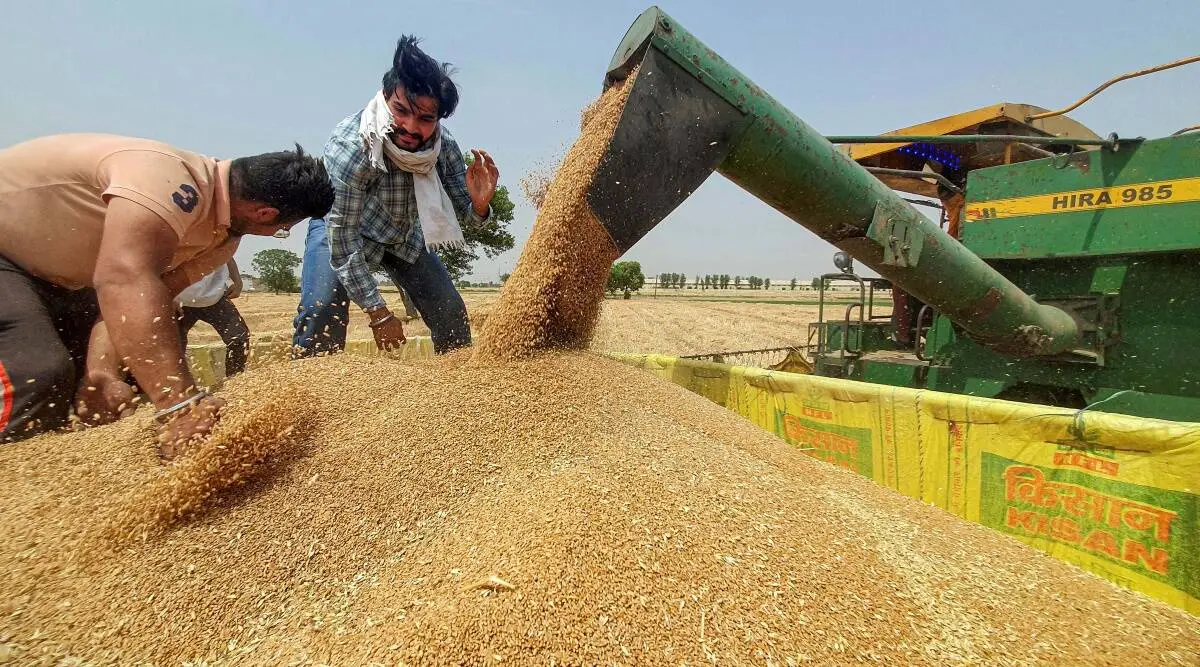India’s government wheat procurement has slowed down due to reduced arrivals in local markets (mandis), with farmers in states like Punjab and Haryana delaying harvesting because of increased moisture content caused by recent rains. This delay has resulted in lower procurement rates, impacting the government’s goal of replenishing wheat stocks, which have hit a 16-year low.
The Union government set a conservative wheat procurement target of 30-31 million tonnes despite a record output estimate of 112 million tonnes. This target is approximately 19% higher than last year’s actual procurement of 26.2 million tonnes, indicating the government’s intention to replenish stockpiles. Adequate state-owned stocks are crucial for stabilizing wheat prices and controlling food inflation, which has been elevated due to global and domestic factors.
According to data from the Central Food Grains Procurement Portal, the government has procured about 7.3 million tonnes of wheat as of now, compared to around 11.5 million tonnes during the same period last year. This significant decrease in procurement is due to farmers’ delays in harvesting caused by high moisture content. Abhishek Agrawal of Comtrade noted that “all-India arrivals of wheat are down nearly 38% year-on-year to 9 million tonnes” due to this weather-related delay.
The government remains optimistic about meeting its procurement target as wheat arrivals are gradually increasing. A food ministry official, who requested anonymity, indicated that the procurement target would be achieved, citing the increase in arrivals. The recent slowdown in government wheat stocks follows the sale of nearly 10 million tonnes of wheat since June last year to bulk buyers, such as flour mills, in an effort to curb domestic prices.
Despite these challenges, the government has not resorted to wheat imports, which currently attract a 40% duty. The Food Corporation of India aims to procure 30-32 million tonnes for publicly-held stocks to meet the demand for food security and welfare programs, requiring about 23 million tonnes. However, the government missed its procurement targets for the last two years, with 2023-24 purchases falling short by nearly 8 million tonnes from the target.
India has been grappling with high food inflation, prompting the government to impose bans on the export of rice, wheat, and onion to ensure local supplies and mitigate price hikes. The country’s retail inflation dropped to a 10-month low at 4.85% in March, driven by reduced fuel prices, yet food inflation remains high, with cereal inflation rising by 8.4% compared to the previous month. Heat waves and extreme weather in 2022 and 2023 have also contributed to a 2.8-3% reduction in wheat output, fueling a price spiral.
Overall, the government faces an uphill battle to boost wheat procurement and control food inflation amid ongoing weather-related disruptions and global uncertainties.






